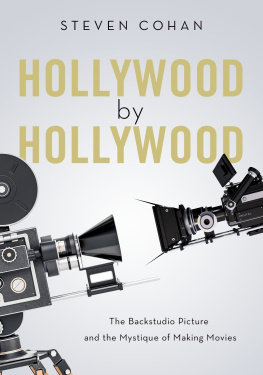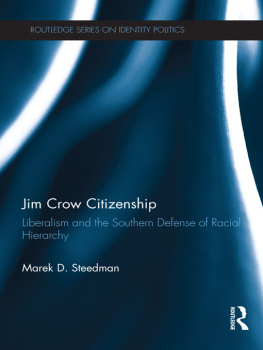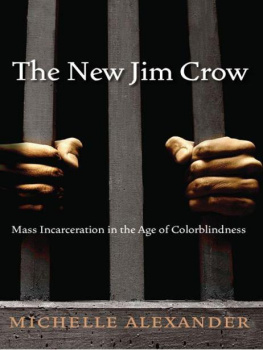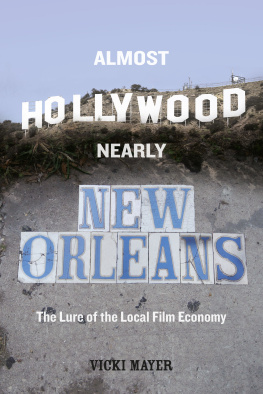Contents
Guide
Pagebreaks of the print version
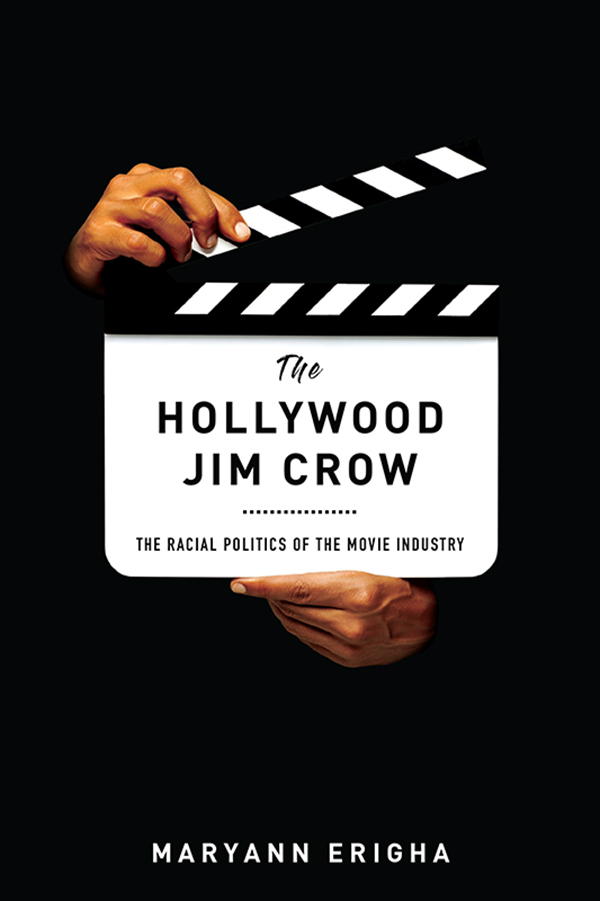
THE HOLLYWOOD JIM CROW
The Hollywood Jim Crow
The Racial Politics of the Movie Industry
Maryann Erigha

NEW YORK UNIVERSITY PRESS
New York
NEW YORK UNIVERSITY PRESS
New York
www.nyupress.org
2019 by New York University
All rights reserved
References to Internet websites (URLs) were accurate at the time of writing. Neither the author nor New York University Press is responsible for URLs that may have expired or changed since the manuscript was prepared.
Library of Congress Cataloging-in-Publication Data
Names: Erigha, Maryann, author.
Title: The Hollywood Jim Crow : the racial politics of the movie industry / Maryann Erigha.
Description: New York : New York University Press, 2018. | Includes bibliographical references and index.
Identifiers: LCCN 2018020940| ISBN 9781479886647 (cl : alk. paper) | ISBN 9781479847877 (pb : alk. paper)
Subjects: LCSH: African American motion picture producers and directors. | African Americans in the motion picture industry. | Motion picturesSocial aspectsUnited StatesHistory.
Classification: LCC PN 1995.9. N 4 E 75 2018 | DDC 791.43/652996073dc23
LC record available at https://lccn.loc.gov/2018020940
New York University Press books are printed on acid-free paper, and their binding materials are chosen for strength and durability. We strive to use environmentally responsible suppliers and materials to the greatest extent possible in publishing our books.
Manufactured in the United States of America
10 9 8 7 6 5 4 3 2 1
Also available as an ebook
CONTENTS
FIGURES AND TABLES
FIGURES
TABLES
Introduction
Race Matters in Hollywood
The movie The Magnificent Seven (2016), an action/adventure western, starred the veteran actor Denzel Washington alongside the less well-known white actors Chris Pratt and Ethan Hawke. The movie was directed by Antoine Fuqua, who, like Denzel Washington, has a number of successful movies under his belt. Despite their combined experience, there was a hesitance among Hollywood insidersthose with great influence on the decision-making processes in the production of popular cinemato produce The Magnificent Seven for a big budget with Washington starring and Fuqua directing. In the following quotation, Steve details the reasons behind his caution:
Loved the scriptplot, characters all incredibly well written and with Denzel and Antoine it feels compelling. My concern is that Equalizer was 36% caucasian and 35% African American. I wonder if we were to look at successful westerns like True Grit how much of that audience was caucasian. I honestly dont know but if I had to guess it would be more caucasian and less african american. So if in the last week were figuring out what audience to double down on like we just did with Equalizer , I want to be sure that audience has the elements they need to buy tickets. Do we double down on the AA audience and if so does that audience show up at Westerns in a big enough way to make our number? Or do we push older Caucasian males toward a Denzel / Antoine Fuqua movie and if so will they show up in a big enough way? Obviously westerns pose an initial set of concerns but Im not sure the pedigree is the perfect fit for the lovers of the genre. And having just been the contemporary, cool, popcorn movie to the Tombstones bleak, old fashioned movieI dont feel as excited about this as id like based on the fiscal layout.
While Steve is a pseudonym for a Hollywood insider, his words and the concerns he voices are real. His momentary praise for the talents of Fuqua and Washington is immediately followed by skepticism for their possibility of success. In particular, he expresses uncertainty about the financial outlook of The Magnificent Seven for reasons that appear to be outwardly related to race. Believing that the audience for all western-genre movies skews Caucasian, Steve imagines a predominantly white audience for The Magnificent Seven . He reasons, therefore, that the cast and directing should also skew Caucasian in order to capitalize on this target audience, as he puts it, to be sure that audience has the elements they need to buy tickets and to be certain the pedigree is the perfect fit for the lovers of the genre. Here, the elements and the pedigree implicitly refer to the racial makeup of the cast and director with respect to imagined audience desires. Steve is unconvinced that the genres key audience (presumably Caucasian males) would show up in a big enough way to make our number for a Black actor and director. In other words, he supposes that the combination of a Black actor and director attached to the movie would not gel with white audiences in a way that would drive them in droves to the theaters for a big box-office return.
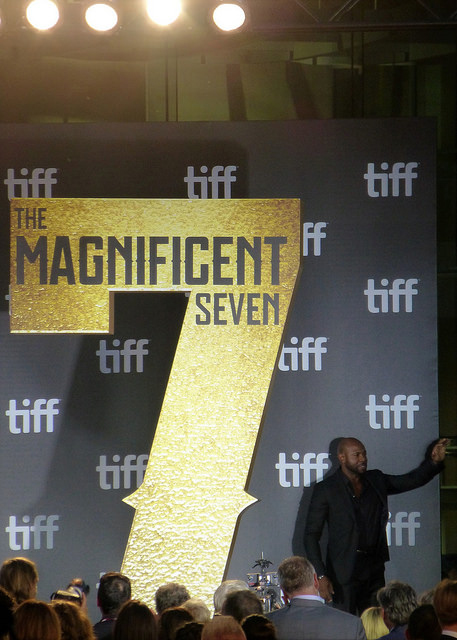
Figure I.1. Antoine Fuqua at the premiere of The Magnificent Seven , Toronto Film Festival, September 8, 2016. Photo by GabboT.
In a single breath, Steve manages to lump racial considerations with culture and economics in what he perceives to be a perfectly unbiased explanation of market and consumer behavior in a popular culture industry. If his concerns were merely a matter of individual taste, there would be little cause for alarm. However, this racial logic is not uncommon among Hollywood insiderspeople who have some aspect of control, input, or voice in the processes of production, distribution, or exhibition of Hollywood movies. Clearly, race matters in Hollywood. On regular occasions, Hollywood insiders such as Steve intertwine race with expectations about profitability and concerns about dollars and cents. Race is a preeminent factor governing decisions about moviemaking, a factor that studio executives consider when determining who should star in or direct a movie and for how much. Likewise, race factors into discussions about where movies should play and to which audiences. Indeed, racial inequalities and hierarchies in the film industry are not simply natural artifacts based on objective assessments of box-office performance. As Steves remark indicates, race enters the conversation long before the box-office numbers roll in, oftentimes even before a movie script receives the green light for production.
Contemporary U.S. race politics shape film-industry organizations and practices. In the U.S. context, where racial boundaries play a significant role in society, race becomes an integral component for analyzing the organizational logics of the film industry. The Hollywood film industry is not one where race does not matter at all, which would be the case in a postracial society. Hollywood decision-makers embed racial logics in arguments about the economic behavior of markets. A box-office mentality determines scripts, development, green light, and production decisions. Steves suggestion that the race of the actor and director correlates with box-office returns attaches race to notions of box-office mentality; specifically, he invokes a stain of Blackness that devalues Black stars, directors, and movies and renders Black culture and people economic risks. Linking race to ideas about potential box-office performance happens even before a movie reaches theaters. Overall, movies with nonwhite lead actors and caststhe movies that nonwhites are predominantly hired to directare projected to perform poorly at the foreign box office. Therefore, Hollywood insiders justify decisions based on race under the logic that race is a factor that shapes box-office returns.


